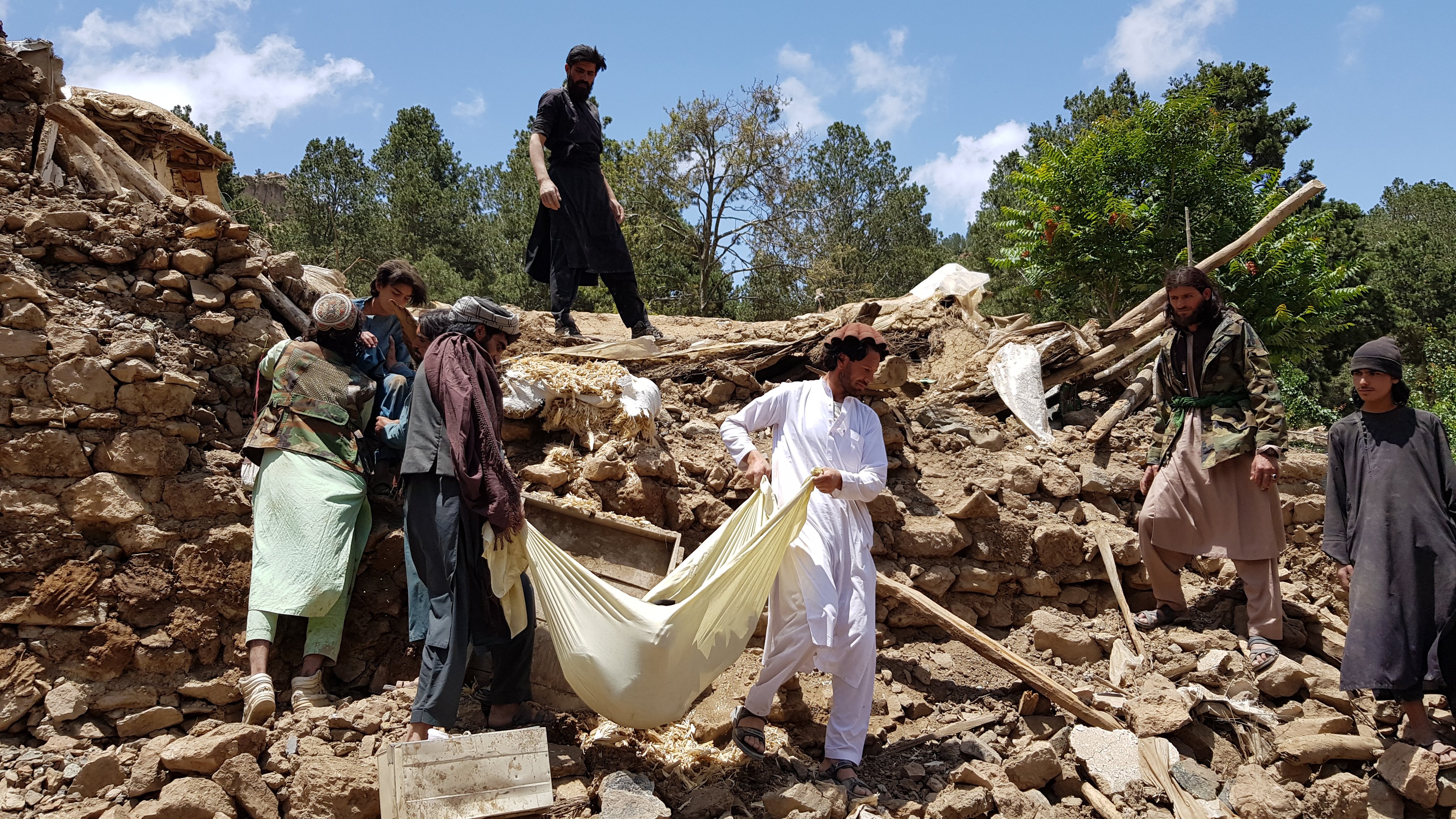When, on Wednesday morning, he finally made it to the remote village of Gyan, where he grew up and where his father and seven younger siblings still lived, Karim Nyazai faced the same Dantean scenario he had already been exposed to passing through so many other villages. along the 90 kilometers that separate Sharan, the capital of the Afghan province of Paktika.
“During the way, my legs were shaking. I started to realize that my village could be destroyed when I saw other villages along the way completely or partially collapsed, with people trying to pull family members out of the rubble with hands and shovels,” the 28-year-old told Briton The Guardian., in the wake of the earthquake that hit eastern Afghanistan on Tuesday night and left at least 1,150 dead.
Afghanistan earthquake death toll rises to 1,150
Karim had also felt the ground tremble during the night, which he spent outdoors for fear of aftershocks, but nothing could have prepared him for the vision he saw when it finally hovered over the place where the house where he grew up once stood: now partially destroyed, with two two four bedrooms completely undone.
Like the inhabitants of the villages he had passed through, his father, with his bare hands, tried to make his way through the rubble of the room where his brothers slept, while reciting parts of the Koran and sobbing. “There were bodies outside, wrapped in blankets. He did not dare to look at the faces. I didn’t know where to start,” the Afghan told the newspaper.
Four of his brothers died, three boys aged 7, 12 and 17 and a 22-year-old girl. In total, he discovered over the course of that day, there were 22 relatives who lost to the earthquake, which left practically no stone unturned in Gyan, a town where some 50 families had lived until then. “They died in their sleep. The world fell on them ”, he summed up, despondent, sitting at the door of one of the hospitals in the provincial capital.
The final days, he told The Guardian on Thursday, were spent between the village and Sharan, helping the wounded and burying the dead. Since the earth trembled, Karim assured him, he has not eaten. “I can’t. Now I’m here at the door of the hospital and I don’t know what to do. My father is still sitting in the rubble crying for my sister, my brothers and their cousins. There are still people buried in the rubble from other villages,” he said. “I left the wounded in the hospital and buried the dead again. I haven’t had time to cry yet. I feel like I’m sleeping and I don’t know who I should cry for. I don’t know which one I should cry for.”
Source: Observadora
